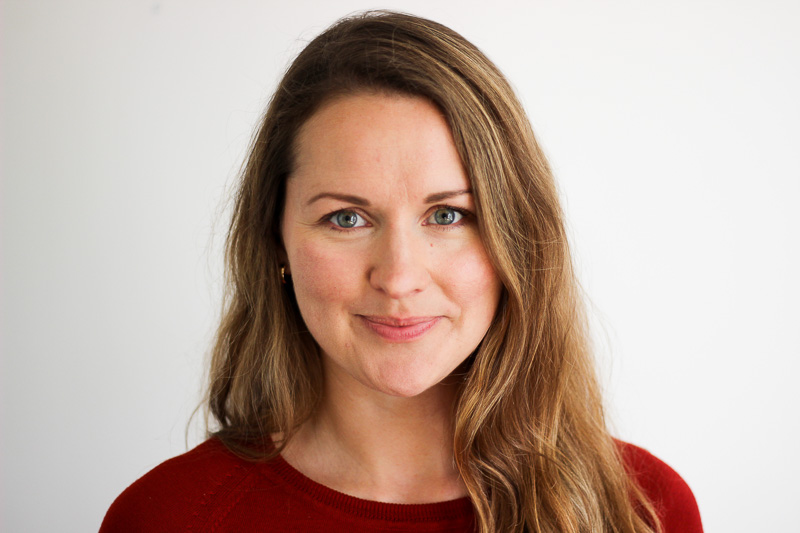Sophie Hobson, Head of Comms at the School for Social Entrepreneurs (SSE)
SSE helps 1,000 people a year develop the skills, strengths and networks they need to tackle society’s biggest problems. We caught up with Sophie on fangirling Esther Rantzen and her passion for creating opportunities for the people society has left behind.
“Most organisations do not reflect the society they serve. We need to ask difficult questions of ourselves, if we want to counter our biases and become more inclusive. ”
Did you have a female role model or someone you admired as a kid?
I was obsessed with Esther Rantzen as a kid! I learnt about Childline when I was quite young and thought it was an amazing idea for supporting children who were having a difficult time. As the founder of that charity, she could do no wrong in my little eyes. A pretty unusual role-model for a seven-year-old, I suppose, but there you go!
How do you think your early years have influenced what you do today?
My mum has volunteered for Cancer Research since before I was born, and is always organising fundraising events that seem genuinely fun. That – along with my fangirling Esther Rantzen – definitely sparked a commitment to charitable causes and social change. There was a lot of campaigning going on about greenhouse gases and protecting endangered species that reached me as a child, too. I remember I had a children’s book created by Greenpeace about the Rainbow Warrior, and another by the Vegetarian Society that was a kind of survival guide for vegetarian teenagers. I guess all those things wiggled their way into my identity. (And made me annoyingly self-righteous as a teenager... sorry, everyone.) And I’ve always loved writing and drawing, which explains the communications bit.
You have helped build several startups in the past. What led you down this path and what were some of your biggest learnings?
It’s so exciting to work at a start-up. I loved feeling like I was genuinely helping to shape the direction of those businesses, and how quickly I could make ideas a reality. It’s very fast-moving, and I enjoy wearing lots of hats. It is also – as everyone says – an emotional rollercoaster. You have to be prepared for the days when everything feels frustrating and desperate, sometimes just days apart from the successes - when it feels like you’re going to take over the world! I think my biggest learning is how important it is to be working with a team that you trust and you like, when you’re in that environment. You often have to go above and beyond the call of duty to make things work, and that only feels worth it when you respect your team-mates. In a small team, mutual respect and a shared vision are essential.
How do you keep learning more whilst on the job?
Talking to people in similar roles to me at other organisations, reading and doing regular training to develop my skillset, and keeping an eye on what other sectors and organisations are doing to innovate in my field.
“I have had a relatively privileged life. I would be an idiot not to recognise how that has opened certain doors for me. ”
What have been the essential factors that have enabled you to get to where you are today that you'd think you'd struggle without?
I have learnt how to keep my work-life balance in check. I love talking to people and I am creative. Overall, I feel okay about myself… apart from the inevitable imposter syndrome sneaking in from time to time. Also, I have had a relatively privileged life. I would be an idiot not to recognise how that has opened certain doors for me. For example, I have had a good education, a loving family, generally been in good health, and always had a roof over my head. I believe it is completely random that I have ended up with that amount of luck, and it’s not fair that people in other circumstances might find it more difficult to find meaningful employment or support. I guess that’s why I spend my working life supporting social entrepreneurs and social-sector leaders – they’re tackling injustices and creating opportunities for the people society has left behind.
Where do you get your inspiration?
Trying to take in a diverse range of media, observing other people’s behaviours, and finding out what other people are excited by and geek out on. Also, walking among lots of plants helps clear my mind.
What do you think is missing from businesses in building true diversity?
Inclusivity, and shying away from difficult questions. Most organisations do not reflect the society they serve, but the people working there are afraid to ask why some people have ended up excluded. We need to get comfortable with feeling uncomfortable. It takes hard work, self-reflection and challenge to our own beliefs to understand why we are prejudiced towards certain people. We need to ask difficult questions of ourselves, if we want to counter our biases and become more inclusive.
Do you think social entrepreneurship is opening more doors for women to come through?
Absolutely! The majority of social entrepreneurs we support at SSE are women. Across the UK more broadly, 40% of social enterprises are led by women, according to research from Social Enterprise UK.
SSE Global Team
You now work with the School for Social Entrepreneurs. How can businesses help make social entrepreneurship a success in this country?
Loads of ways! Businesses can work in partnership with social enterprises, get them in their supply chain and buy from them (this directory will help). Larger corporates can provide funding to the social-enterprise sector. Of course, the ideal solution would be for businesses to become social enterprises themselves! Even big businesses can make this change, as Cordant Group proved last year.
You’re an expert in content marketing. What brands are on your radar right now that you believe are pushing the boundaries in this space?
I’m more interested in how organisations are using technologies like virtual reality (VR) and voice to create more powerful communications. For example, the National Autistic Society’s Too Much Information film gave me an insight into autism that I don’t think would have been possible without the VR element. It’s a great example of using technology to improve story-telling, rather than using tech in a novelty way that feels clumsy.
Who's a woman to watch or someone you admire in 2018?
I think June Sarpong is doing brilliant work to promote the diversity and inclusion agenda. Also, all the women in the recently announced Women in Social Enterprise 100 are well worth watching (and SSE’s managing director Nicola Steuer is among them!).
Name the quote you live by
“Unless you catch ideas on the wing and nail them down, you will soon cease to have any.” – Virginia Woolf
Chat to Sophie on Twitter @sophiehobson





